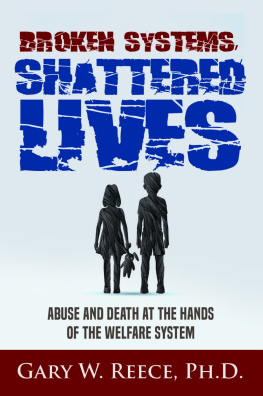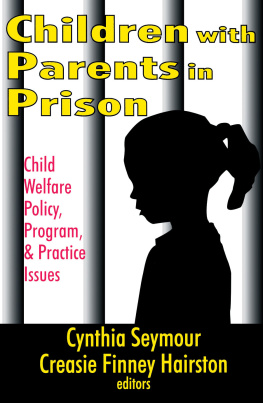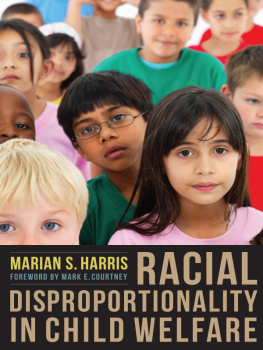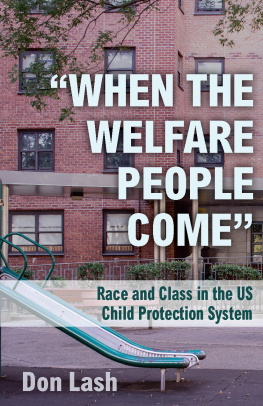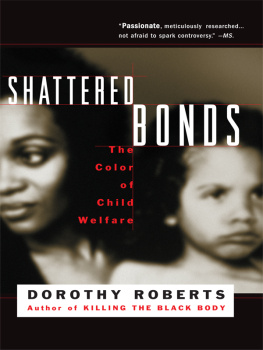
Reforming Child Welfare in the Post-Soviet Space
This book provides new and empirically grounded research-based knowledge and insights into the current transformation of the Russian child welfare system. It focuses on the major shift in Russias child welfare policy: deinstitutionalisation of the system of childrens homes inherited from the Soviet era and an increase in fostering and adoption.
Divided into four sections, this book details both the changing role and function of residential institutions within the Russian child welfare system and the rapidly developing form of alternative care in foster families, as well as the work undertaken with birth families. By analysing the consequences of deinstitutionalisation and its effects on children and young people as well as their foster and birth parents, it provides a model for understanding this process across the whole of the post-Soviet space.
It will be of interest to academics and students of social work, sociology, child welfare, social policy, political science, and Russian and East European politics more generally.
Meri Kulmala holds a PhD in sociology and a title of docent in Russian and Eurasian Studies. She works as a university researcher and research coordinator of the Helsinki Inequality Initiative (INEQ) in the Faculty of Social Sciences at University of Helsinki, Finland. She works and publishes on issues of post-socialist welfare state and civil society development, womens activism, family and child welfare policy, and feminist research methods. She leads an international interdisciplinary research project on child welfare in Russia and is involved in a project exploring youth well-being in the Arctic region, with her focus being on the well-being of young care leavers, which she studies principally through participatory research methods.
Maija Jppinen holds a PhD in social work and works as both a university lecturer in the Faculty of Social Sciences in University of Helsinki and a postdoctoral researcher in the bo Akademi University, Finland. Her research interests include Russian studies, gender violence, child welfare, social work practice research, social work with migrants, power asymmetries in social work encounters, migrant citizenisation, and human rights. Methodologically, she specialises in ethnographic research, qualitative research in different kinds of transnational settings, and feminist methodology.
Anna Tarasenko holds a PhD in political science. Her current research focuses on the non-profit sector development in Russia. She has accomplished empirical research on various types of non-profits and their involvement in social service provision as well as engagement in interest representation in contemporary Russia. She has worked as a researcher in several international research projects, including the UNRISD research project New Directions in Social Policy: Alternatives from and for the Global South and the international research project based at the University of Helsinki entitled A Childs Right to a Family: Deinstitutionalisation of Child Welfare in Putins Russia.
Anna Pivovarova is a social anthropologist working on parenting, childhood, and kinship. She holds a masters degree in anthropology from the European University at St. Petersburg and works as a PhD candidate at the University of Helsinki focusing on adoptive and foster parenthood in todays Russia. She has conducted research and published on modern home birth practice and independent midwifery and participated in research projects on maternity health care, child welfare, and alternative family care in Russia. Her research interests include medical anthropology, new kinship studies, narrative analysis, invented traditions, rituals, and modern folklore.
Routledge Advances in Social Work
Forthcoming:
The International Development of Social Work Education
The Vietnam Experience
Edward Cohen, Alice Hines, Laurie Drabble, Hoa Nguyen, Meekung Han, Soma Sen and Debra Faires
International Perspectives on Social Work and Political Conflict
Edited by Joe Duffy, Jim Campbell and Carol Tosone
Asian Social Work
Professional Work in National Contexts
Edited by Ian Shaw and Rosaleen Ow
Critical Hospital Social Work Practice
Daniel Burrows
Challenges, Opportunities and Innovations in Social Work Field Education
Edited by Ronnie Egan, Nicole Hill and Wendy Rollins
The Challenge of Nationalist Populism for Social Work
A Human Rights Approach
Edited by Carolyn Noble and Goetz Ottmann
Reforming Child Welfare in the Post-Soviet Space
Institutional Change in Russia
Meri Kulmala, Maija Jppinen, Anna Tarasenko and Anna Pivovarova
Women, Vulnerabilities and Welfare Service Systems
Edited by Marjo Kuronen, Elina Virokannas and Ulla Salovaara
For more information about this series, please visit:
www.routledge.com/Routledge-Advances-in-Social-Work/book-series/RASW
First published 2021
by Routledge
2 Park Square, Milton Park, Abingdon, Oxon OX14 4RN
and by Routledge
52 Vanderbilt Avenue, New York, NY 10017
Routledge is an imprint of the Taylor & Francis Group, an informa business
2021 selection and editorial matter, Meri Kulmala, Maija Jppinen, Anna Tarasenko and Anna Pivovarova; individual chapters, the contributors.
The right of Meri Kulmala, Maija Jppinen, Anna Tarasenko and Anna Pivovarova to be identified as the authors of the editorial material, and of the authors for their individual chapters, has been asserted in accordance with sections 77 and 78 of the Copyright, Designs and Patents Act 1988.
All rights reserved. No part of this book may be reprinted or reproduced or utilised in any form or by any electronic, mechanical, or other means, now known or hereafter invented, including photocopying and recording, or in any information storage or retrieval system, without permission in writing from the publishers.
Trademark notice: Product or corporate names may be trademarks or registered trademarks, and are used only for identification and explanation without intent to infringe.
British Library Cataloguing-in-Publication Data
A catalogue record for this book is available from the British Library
Library of Congress Cataloging-in-Publication Data
A catalog record for this book has been requested
ISBN: 978-0-367-90424-1 (hbk)
ISBN: 978-1-003-02431-6 (ebk)
Typeset in Times New Roman
by Apex CoVantage, LLC
Contents
PART I
Introduction
MERI KULMALA, MAIJA JPPINEN, ANNA TARASENKO, AND ANNA PIVOVAROVA
PART II
Changing numbers, shifting discourses
SVETLANA BIRYUKOVA AND ALLA MAKARENTSEVA
ELENA IARSKAIA-SMIRNOVA, OLGA KOSOVA, AND ROSTISLAV KONONENKO
PART III
Transforming institutions
MERI KULMALA, LARISA SHPAKOVSKAYA, AND ZHANNA CHERNOVA
ANNA TARASENKO
MAIJA JPPINEN AND MERI KULMALA
PART IV
Foster and birth families under institutional change
ZHANNA CHERNOVA AND LARISA SHPAKOVSKAYA
MAIJA JPPINEN
PART V
Children in care: social adaptation and aftercare
LARISA SHPAKOVSKAYA AND ZHANNA CHERNOVA
MERI KULMALA, ZHANNA CHERNOVA, AND ANNA FOMINA
PART VI
Conclusions
MERI KULMALA, MAIJA JPPINEN, ANNA TARASENKO, AND ANNA PIVOVAROVA


